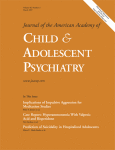- Joined
- Feb 23, 2012
- Messages
- 4,559
- Reaction score
- 14,290
Finally, I provide psychoeducation that ADHD is (1) a childhood disorder, (2) remits in ~50% of adults, (3) when symptoms are present in adults, there is very high co-morbidity (eg, bipolar ~45%) and differentiation of cognitive symptoms as primary v. secondary is difficult,
I assume the book you cited is where you got this? I have other Stahl's books, but not this one. Does it really say there's 45% comorbidity with bipolar disorder? I find that very high considering only 1% of the population actually has bipolar disorder. I also feel like 50% remittance rate in adults is too high. Guess I need to get the book.

